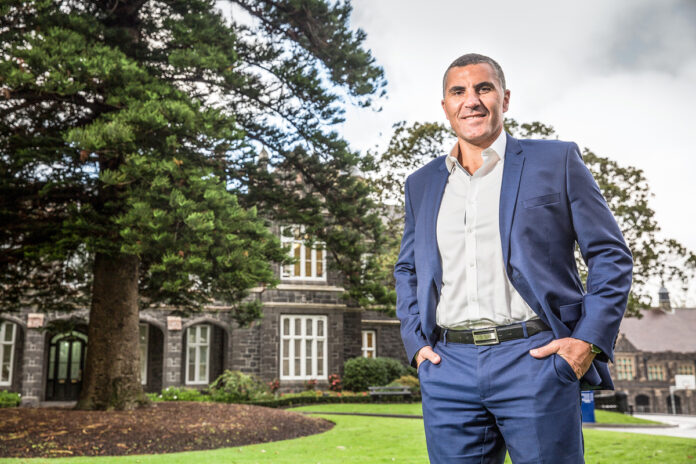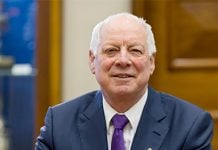Meet Jason Mifsud, an influential advocate for Indigenous people, and the new Chair of our Indigenous Steering Committee.
In his new role as Chair of Melbourne Grammar School’s Indigenous Steering Committee, Jason Mifsud, believes that opportunities for young Indigenous students are “limited only by imagination”.
A proud member of South West Victoria’s Gunditjmara nation, Jason is recognised as one of Australia’s most influential advocates for Indigenous people and inclusion.
Prior to starting his own consulting business, Jason was the Executive Director for Aboriginal Victoria where he led the State Government’s Aboriginal Affairs reform agenda. This included establishing the architecture and governance arrangements to embed Aboriginal self-determination in policy development and implementation, as well as the roadmap to a potential Treaty agreement, an Australian first.
Jason views his role as the Indigenous Steering Committee Chair as another way to promote systemic change through relationships, understanding and mutual benefit.
“I’ve always had an innate curiosity around education,” Jason explains. “My real passion lies in promoting inclusion, particularly for young Aboriginal people. As custodians, we need to leave the world in a better place than we inherited and through relationships, respect and practical structural reform, ensure that our young people have every chance to reach their full potential.”
“I see a world of opportunity in which Melbourne Grammar could become a place of influence in terms of social and cultural reform, by either influencing our current leaders or creating our future ones, to build a shared and equal future.” Jason says.
The Indigenous Steering Committee has a mandate to enhance Melbourne Grammar School’s impact on Indigenous education for all students, their families, and the greater School community.
Along with providing strategic advice and guidance about activities and initiatives, the Committee also oversees the Indigenous Bursary Programme, which has so far supported 32 Indigenous students.
“Our bursaries are crucial,” Jason says. “Historically, Aboriginal people have been locked out of influential institutions, and the education, friendships and networks they offer. For a whole range of these historical reasons, many Aboriginal people are not able to directly fund their sons, nephews or grandsons to experience a school like Melbourne Grammar.”
Jason emphasises that education for Indigenous students can have an impact far beyond that person’s own life. “We currently have a humble number of Aboriginal students at the School, however due to the role modelling effect, both through our own kinship networks as well as the non-Indigenous students, the impact is far greater than the individual students themselves” he explains.
“We know that Melbourne Grammar students are having global influence. Imagine if we produced Australia’s first Aboriginal Prime Minister?” Jason adds. “Of course, we need to do the work to reach this aspiration, however we should dare to dream that we become the pre-eminent school for Indigenous education in Australia, producing not only Indigenous excellence, but global excellence.”



